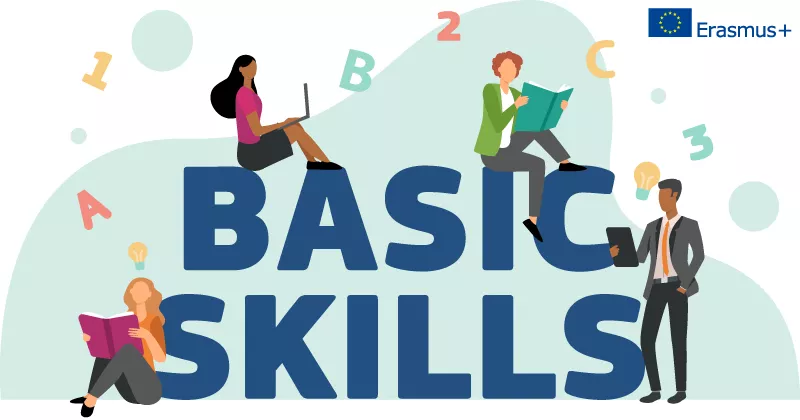Diskussjoni ta’ EPALE: Il-forniment ta’ tagħlim ta’ ħiliet bażiċi

L-iżgurar tal-ħiliet bażiċi għal kulħadd huwa pass neċessarju biex is-soċjetajiet ikunu jistgħu jiġġieldu l-isfidi soċjali, tas-saħħa, ambjentali u ekonomiċi attwali u futuri, u biex jiġu implimentati politiki b’mod effettiv sabiex tiġi appoġġjata s-sostenibbiltà tas-soċjetajiet u tal-ekonomiji Ewropej u tiġi promossa pjaneta aktar sana.
Il-ħiliet bażiċi huma trasversali. Dawn mhumiex rilevanti biss għall-politika edukattiva, iżda huma rilevanti wkoll għall-politiki tal-impjiegi, tas-saħħa, soċjali u ambjentali. Il-bini ta’ miżuri ta’ politika koeżivi li jappoġġjaw lill-persuni bi ħtiġijiet bażiċi ta’ ħiliet huwa meħtieġ mhux biss biex il-Perkorsi ta’ Titjib tal-Ħiliet ikunu suċċess, iżda wkoll biex jgħinu fil-bini ta’ soċjetajiet aktar reżiljenti u inklużivi.
Id-diskussjoni online se ssir f’din il-paġna fis-16/17 ta’ Settembru bejn l-10:00 u s-16:00 CET u se tkun immoderata mill-Koordinaturi Tematiċi ta’ EPALE tal-EBSN Zoltán Várkonyi u Tamás Harangozó.
Id-diskussjoni fis-16 u fis-17 ta’ Settembru se tinkludi s-suġġetti li ġejjin:
- il-litteriżmu kritiku
- il-litteriżmu fis-saħħa
- il-litteriżmu finanzjarju
- in-numeriżmu
- il-ħiliet diġitali bażiċi għall-futur.
Jekk jogħġbok ingħaqad fid-diskussjoni online tagħna dwar il-forniment ta’ tagħlim ta’ ħiliet bażiċi fis-16/17 ta’ Settembru 2020!
Il-kummenti se jkunu miftuħa fis-7 ta’ Settembru sabiex il-parteċipanti jkunu jistgħu jintroduċu lilhom infushom jew jibagħtu l-kummenti tagħhom minn qabel
Kumment
Yes, we do have some very
Could you give us a link, Eva?
I will probably make a short
Thank you!
Greetings from Hungary
Welcome, Eva!
basic in Latvia
Wonderful, Ilze!
LURKERS, we want to "hear" your voice!
from Latvia
That is very understandable...
New question to all participants:
Target group?
In the case of Norway...
Indeed, wWe are still
Nice example from German newspaper
Exactly! And that is actually...
\Yes, if only 10% of the
If psychological factors are
How the learning is presented...
Edutainment math
Math edutainment
Link to Gamification
Or maybe motivating them: if
Welcome in the last half an hour of the discussion, Alena!
Welcome, Kees!
I tried to give some input,
Disable auto-refresh!
Absolutely true that numeracy
Gamification in financial literacy
Financial literacy - a link for good practice
Goodbye
ZPM special: Numeracy and vulnerability in adult life
Thank you!
developments
Frameworks
Common European Numeracy Framework
That holistic view...
At the eond of 2021 we hope
EBSN OER collection and MOOC
I think the OER and MOOC on
Typical challenges
I would be cusrious to read about "typical" challenges participants of this discussion faced when it comes to numeracy or in general basic skills training programmes.
Kees, based on you experience, what would you say the most typical challenges are to participants besides the fear of numbers?


End of Day 2 - but not necessarily end of the discussion